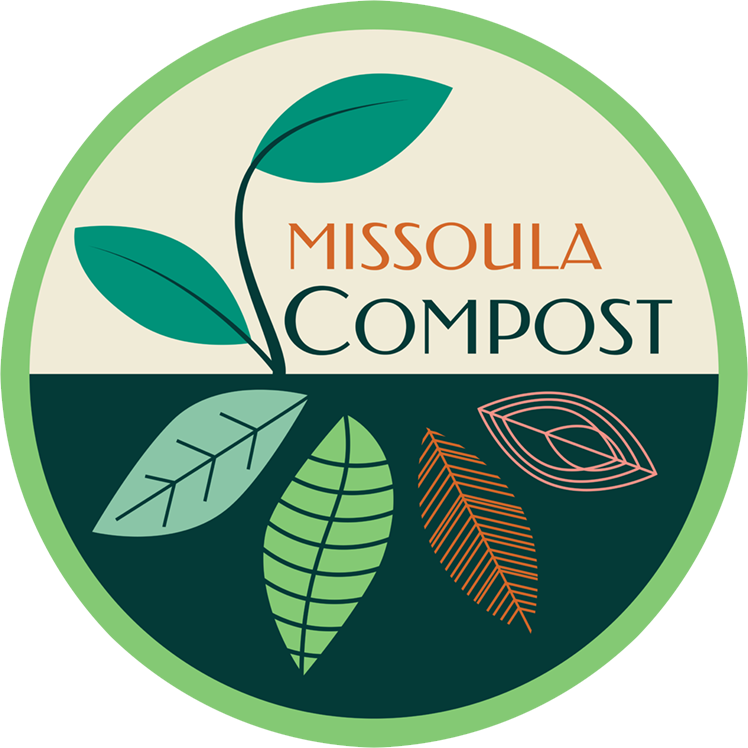The Secret Life of Compost
The United States has the Federal Bureau of Investigation to enforce laws and eliminate threats. But did you know nature has its own FBI? Fungi, Bacteria, and Invertebrates work tirelessly to uphold the laws of decomposition, eliminate pathogens, and transform waste into nutrient-rich soil.
Decomposers are nature's cleanup crew. These microscopic detectives and muscle-bound workers team up to break down organic matter, sift through materials, and turn scraps into dark, fertile soil. They investigate waste, eliminate harmful elements, and recycle nutrients to support new growth.
Fungi: The Deep-Cover Agents
Fungi take a more subtle approach, working beneath the surface to infiltrate and decompose organic material. Instead of rushing in, they extend hidden networks of mycelium (thin fungal strands) that break down tough, fibrous waste that bacteria struggle with. Unlike bacteria, fungi specialize in carbon decomposition, thriving on materials like branches, cardboard, and dry leaves.
Some fungi operate completely unseen, while others appear as white or gray fuzz on compost. If you spot fungal growth, it’s a sign your compost is developing rich, complex nutrients that plants love.
Bacteria: The Crime Scene Investigators
Bacteria are the forensic analysts of composting, breaking down organic material at a microscopic level. They work at astonishing speed, doubling every 15 minutes, quickly generating heat and pushing a compost pile through its decomposition stages. In the mesophilic stage, bacteria get to work on the easy evidence; particularly sugars and starches. As the compost heats up, thermophilic bacteria take over, eliminating pathogens and wiping out the unwanted weed seed mafia. Once the pile cools, mesophilic bacteria return to clean up the remaining organic material, ensuring everything is broken down properly.
Bacteria specialize in nitrogen decomposition. They are the food scrap-loving, fresh-cut grass-gobbling powerhouses behind composting. However, they’re also responsible for any strong odors coming from your compost bin.
Invertebrates: The Muscle of the Operation
While bacteria and fungi handle the microscopic work, invertebrates take care of the heavy lifting. Worms, beetles, centipedes, and other soil creatures churn the compost, aerating it and speeding up decomposition. They shred and digest plant material, increasing the surface area for bacteria and fungi to work more efficiently. Tough leaves, stems, and other fibrous materials break down much faster after passing through a worm's digestive system.
These workers take a break during the hottest phase of composting, but once the pile cools, they return to finish the job.
Mission Not-Impossible: Turn Your Waste into Garden Gold
At the end of the process, nature’s FBI has transformed food scraps, yard waste, and organic material into nutrient-rich compost. Building the very foundation of strong roots, lush growth, and vibrant gardens.
Want healthier plants and thriving soil? Invest in premium compost soil this spring from Missoula Compost! We deliver soil right to your lawn! Check out our soil store for more information
Want to pick the soil up yourself? Head down to Garden City Compost to fill your truck.
We are also excited to share that Missoula Compost customer soil giveback options are coming soon! In the meantime, be sure to come see us at these local events!
Local Events
Earth Day Celebration at MUD – April 19, 2025 (Saturday) | 11:30-2 PM
Celebrate Earth Day at MUD’s 19th Annual Earth Day Celebration. Enjoy a day filled with interactive exhibits, local businesses, nonprofits, and artists - all working toward a more sustainable Missoula. Visit the Missoula Compost booth to learn how you can reduce waste and give back to the earth. This free, family-friendly event is the perfect way to honor our planet.UM Sustainability Fair – April 22, 2025 (Saturday) | 12 PM
Join us on the UM Oval for an afternoon of sustainability, learning, and community connection. Stop by the Missoula Compost booth to discover how we transform food waste into nutrient-rich soil and how you can be part of the movement. Easily accessible by bus, foot, or bike, the UM Oval is the place to be!Clark Fork River Market – Opening Day! – May 3, 2025 (Saturday) | 8 AM
The Clark Fork Market is back, and so are we. From May through September, find Missoula Compost at the market and chat with us about how composting can make a big impact on our community. Whether you're a seasoned composter or just getting started, we’d love to answer your questions and help you get involved. See you there!
Your friends at Missoula Compost
References
Cornell Waste Management Institute. “The Living World of Compost: Microorganisms.” Cornell University, n.d., https://compost.css.cornell.edu/microorg.html
Cornell University. (n.d.). Soil Invertebrates in Composting Systems. Cornell Composting. Retrieved from https://compost.css.cornell.edu/invertebrates.html
Cornell Waste Management Institute. (n.d.). Composting: Chapter 1 – Introduction to the Composting Process. Retrieved from https://cwmi.css.cornell.edu/chapter1.pdf
Hotbin Composting. All about bacteria and microorganisms. Hotbin Composting, N.d, https://hotbincomposting.com/blogs/science/all-about-bacteria-and-micro-organisums

